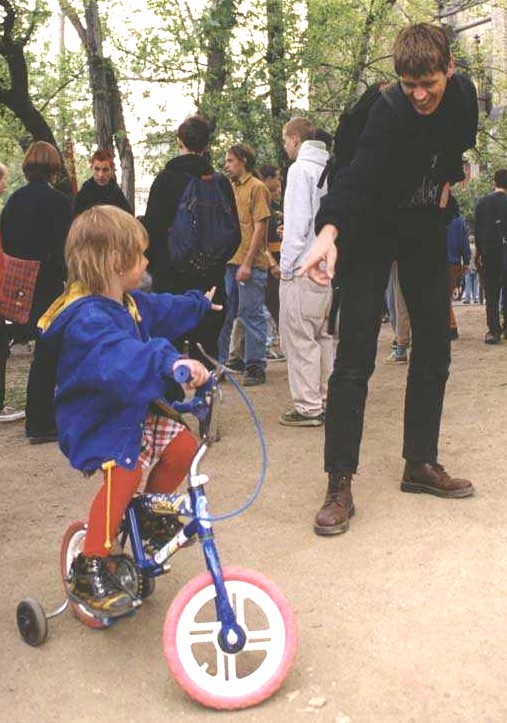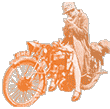 |
Women`s problems
[ 5.3.2001, Jan Haverkamp
Feminismy > Feminismus
]
A seminar on campaigning for the School of Civil
Initiative. Place: Police nad Metuji, time: an early Saturday morning. As
professional facilitator for the ZHABA
facilitators collective, i have to be aware steadily of power relations
between participants while facilitating this kind of processes. That includes
power balances with a gender factor. And that is in my experience in the Czech
Republic a larger challenge than anywhere else in Europe.
We make an introduction round. Everybody tells her/his
name, place where she/he comes from and what kind of campaigning she/he would
like to be active in. About a third of the 20 participants is female.
Campaigning ideas run from children`s projects to opposition against motorways.
On roughly three quarters of the round, a young woman introduces herself. She is
currently campaigning against the increasing number of hypermarkets, and as
feminist she would like to campaign more on...
... "women`s problems". Direct reaction from the
other side of the circle in a strong male voice: "What problems???"
A few seconds of silence. The young woman does not directly know how to react.
Because we are already a little late on schedule, I need to decide fast to do
something to prevent a huge discussion, but I also want to strengthen the
position of the young woman who was so courageous to out herself as a feminist.
I decide for a short and pointed reaction: "That kind of
problems - like the fact that you don`t see them," and we continue with
the next person in the line.
This was conscious use of my own power position - as
facilitator, as oldest in the group, as foreigner (in spite of the fact that my
Czech is not really fluent and the whole seminar went in Czech), and certainly
not in the least as... man. It is not easy for me to assess when and how i can
use my own power position as man in this country, in spite of the fact that i
already live her for a considerable time and work in the region already much
longer. More then 10 years ago, when I was active in progressive church
movements where feminist theology was the prevailing paradigm, i know i should
not have tried to react as I did now. It would have been perceived as taking
power away from the woman that was attacked - and abuse of my power position
as a man (with my stronger voice, higher acceptance of interference and so on).
But the situation here feels different. It felt to me, as if this young woman
did not stand a chance in reacting. The "joking" remark was pushing
her into a corner where it was very difficult to get out without having to set
up an extensive explanatory defense... because the reacting young man not only
wanted to ridicule her outing as feminist - he possibly really doesn`t
know what someone can mean with "women`s problems", because Czech
society, men and a vast majority of women, still actively close their
eyes for the reality of women`s lives in this country. Media support them in
this sexist view (sexist not only in the sense of "gender biased"!), as well as public and political
life and even a majority of the arts.
In a following break i overheard the young man talking to
the young woman. "But seriously, what problems do you mean?" "He
was right, you know... amongst others the fact that you don`t know."
"Don`t know what?" "Women getting 35% less payment for the same
job, having to do over 85% of the caring duties at home in the family, worse
career possibilities because men block off higher positions, too little
attention to violence against women, sexist advertisement, the use of women as
objects in media and advertisements, the fact that women are expected to take
care of the children - also when the wish for children comes from the man...
things like that..."
Maybe it was a good move to side up openly with this young
woman - as a man... I at least hope so. But
I remain confused about my role as pro-feminist man in this society.
| Jan Haverkamp is of Dutch origin and immigrated into the
Czech Republic in 1997. He worked as organizational development specialist
for Central and Eastern European environmental organizations and is
currently Greenpeace anti-nuclear campaigner for Central Europe. He lives with
his partner and daughter in Cvrcovice
near Kladno and has a son in the Netherlands. |
 |
Názory
z druhé strany - Thought from the other side
In
this weekly column, pro-feminist men - men that are strongly influenced
by the feminist movement - write their observations in daily life on the
role of men and women in the Czech Republic.
|





